Introduction
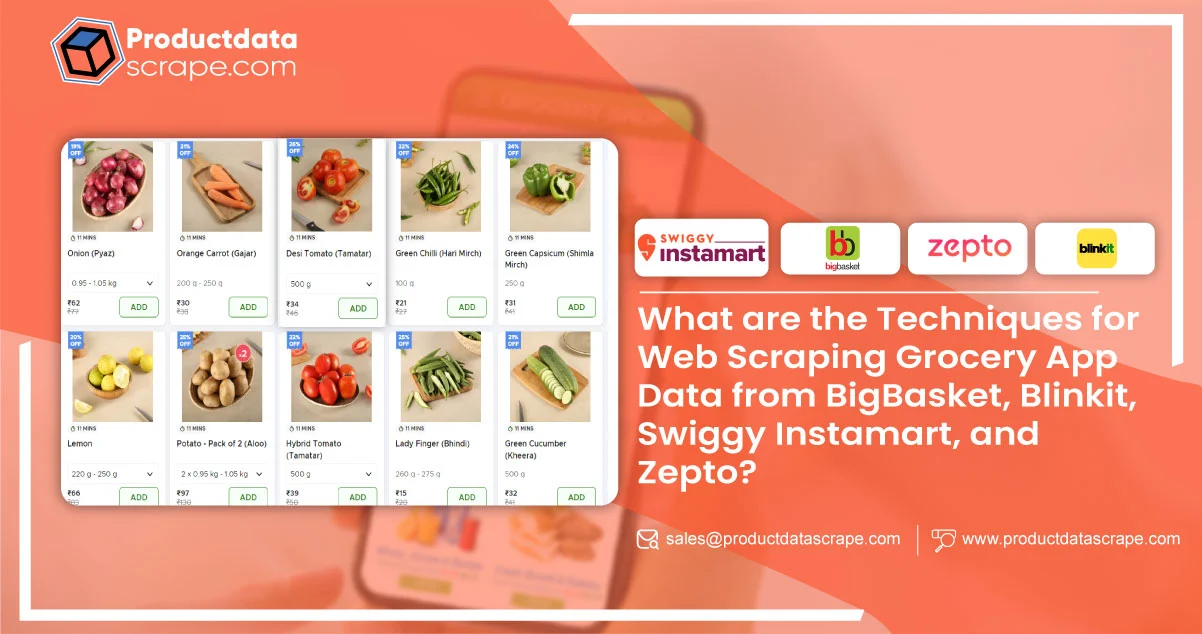
In today's digital age, grocery shopping has evolved with the rise of online grocery apps like
BigBasket, Blinkit, Swiggy Instamart, and Zepto. These platforms offer consumers
unparalleled convenience, a vast product range, and competitive pricing. For businesses,
harnessing data from these apps is crucial for informed decision-making. Web scraping
grocery app data from BigBasket, Blinkit, Swiggy Instamart, and Zepto provides valuable
pricing, inventory, and consumer behavior insights.
To stay competitive, businesses can extract grocery data from BigBasket, Blinkit, Swiggy
Instamart, and Zepto app to monitor prices, understand market trends, and optimize
inventory. However, scraping grocery delivery app data comes with challenges, such as
dynamic content and anti-scraping measures. Despite these, the ability to extract
supermarket data is a powerful tool for gaining a competitive edge. Adhering to best
practices, such as respecting website policies and handling data responsibly, ensures
effective and ethical data extraction. By leveraging this data, businesses can make informed
decisions, enhance their strategies, and thrive in the competitive grocery retail landscape.
Why Web Scrape Grocery App Data?
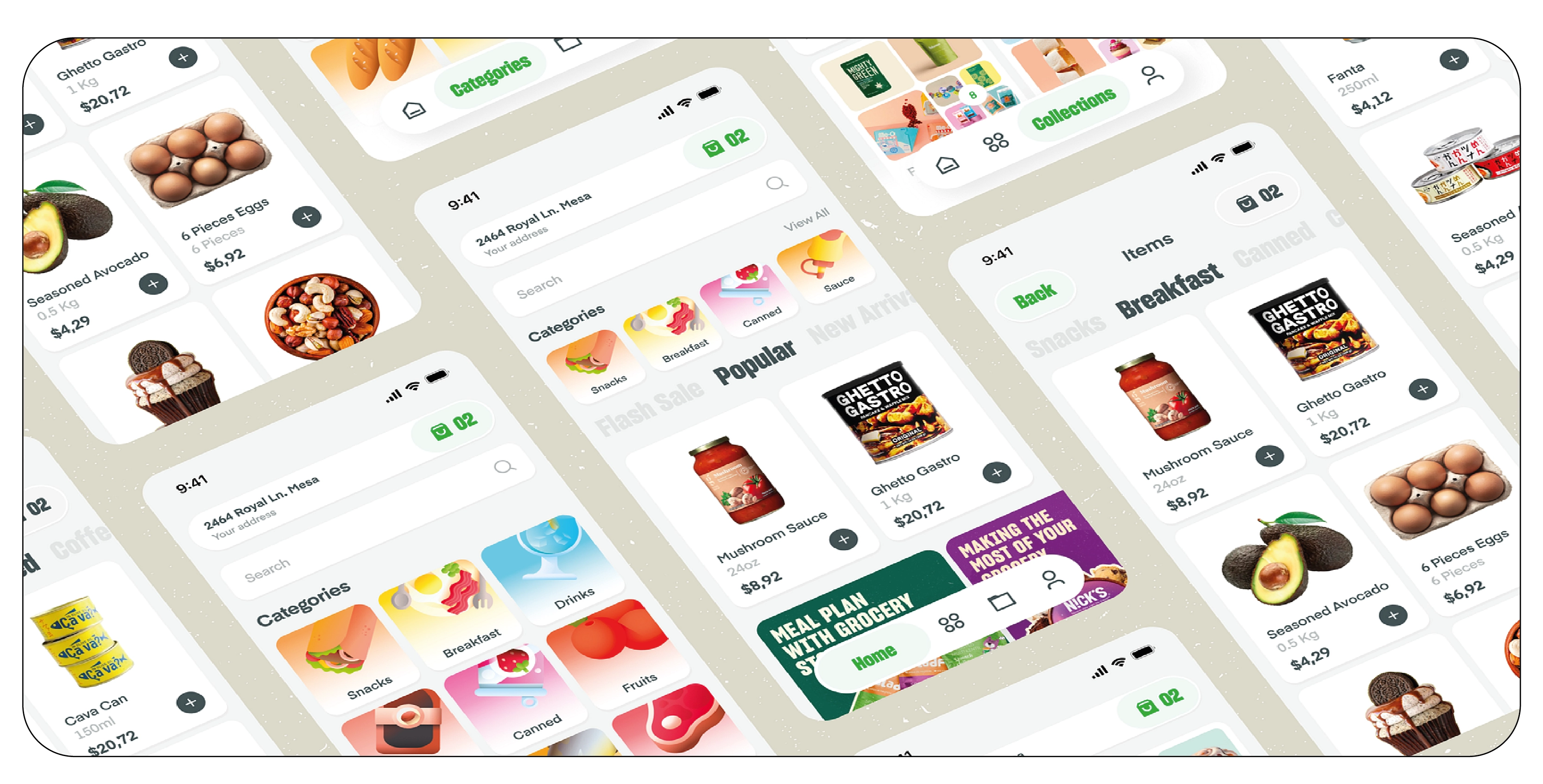
Web scraping grocery app data gives businesses crucial insights into market trends,
competitor pricing, and consumer behavior. By extracting real-time data from platforms like
Bigbasket, Blinkit, Swiggy Instamart, and Zepto, companies can optimize pricing strategies,
improve inventory management, and enhance their marketing efforts, ultimately gaining a
competitive edge in the dynamic grocery industry.
1. Competitive Analysis: By scraping data from grocery apps, businesses can
thoroughly analyze competitors' pricing strategies, product offerings, and
promotional activities. This comprehensive information aids in benchmarking,
identifying market trends, and crafting competitive strategies that align with or
surpass market leaders. The data extracted helps businesses stay agile and
responsive to market dynamics, ensuring they remain ahead in a highly competitive
industry.
2. Price Monitoring: Tracking price fluctuations over time is essential for maintaining
competitive pricing strategies. Scraping real-time grocery data from Bigbasket,
Blinkit, Swiggy Instamart, and Zepto API enables businesses to observe these
fluctuations closely. With this data, they can dynamically adjust their pricing to
remain competitive, attract price-sensitive customers, and optimize profit margins.
Continuous monitoring helps businesses identify patterns or seasonal trends that
could impact pricing decisions.
3. Inventory Management: Effective inventory management ensures that products are
available when customers need them. Businesses can manage their inventory by
understanding product availability and stock levels through web scraping grocery
app data from Bigbasket, Blinkit, Swiggy Instamart, and Zepto. This insight enables
better procurement planning, reduces the risk of overstocking or stockouts, and
enhances overall supply chain management.
4. Consumer Behavior Insights: Analyzing product reviews, ratings, and purchase
patterns provides deep insights into consumer preferences and behavior. With this
information, businesses can tailor their product offerings to meet customer
demands, improve customer satisfaction, and drive loyalty. Extract Swiggy Instamart
supermarket data to help companies better understand what drives consumer
choices, enabling them to create targeted marketing campaigns and improve
product development.
5. Promotional Effectiveness: Understanding how promotions impact sales is crucial
for optimizing marketing spend. Web scraping Quick Commerce data from
Bigbasket, Blinkit, Swiggy Instamart, and Zepto app allows businesses to track the
effectiveness of promotional campaigns in real time. By analyzing this data,
businesses can identify which promotions resonate most with consumers and adjust
their marketing strategies accordingly. This leads to more efficient use of marketing
budgets and higher return on investment.
6. Market Expansion Analysis: Before expanding into new markets, businesses need to
understand local demand, competition, and consumer preferences. Scrape Big
Basket grocery delivery data to gain insights into regional trends, popular products,
and pricing strategies. This data helps businesses decide where to expand, what
products to offer, and how to position themselves in new markets. It reduces the risk
associated with market entry and increases the likelihood of success.
By leveraging Blinkit grocery data scraping services, businesses can gain a competitive
edge, enhance operational efficiency, and make data-driven decisions that lead to sustained
growth and profitability.
Techniques for Scraping Grocery App Data
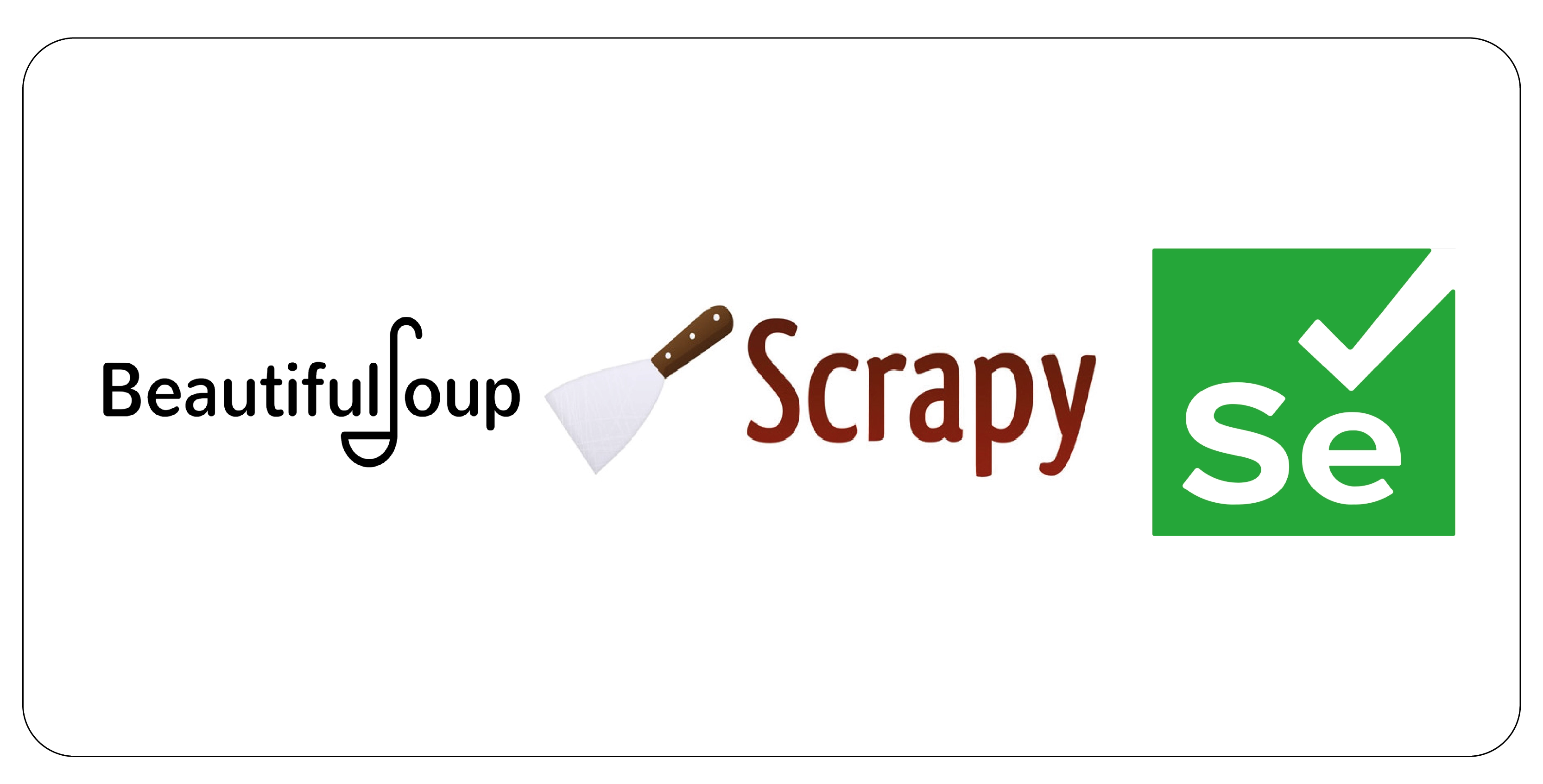
Techniques for scraping grocery app data involve using specialized tools to extract real-time
information from platforms like Bigbasket, Blinkit, Swiggy Instamart, and Zepto. These
methods enable businesses to gather pricing, inventory, and consumer insights crucial for
competitive analysis and decision-making.
Using APIs: Many grocery apps offer APIs that provide structured access to their data. For
example, grocery delivery data scraping services might leverage BigBasket and Swiggy
Instamart APIs to fetch product details, prices, and stock levels. Utilizing these APIs is often
more reliable and efficient than web scraping.
Web Scraping Tools: For apps without public APIs or for more detailed data extraction, web
scraping Quick Commerce data with tools like BeautifulSoup, Scrapy, and Selenium is
essential. These tools help extract data from HTML pages and handle dynamic content,
making them invaluable for gathering comprehensive information.
Custom Scrapers: Developing custom web scrapers tailored to each grocery app's structure
ensures accurate data extraction. This approach is beneficial for obtaining specific Zepto
grocery delivery datasets by writing scripts to navigate through web pages, handle
pagination, and extract relevant data fields.
Challenges in Web Scraping Grocery App Data
![]()
It includes dealing with dynamic content, anti-scraping measures, and frequent changes in
app structures. These obstacles require advanced techniques and tools to ensure reliable
data extraction while avoiding legal and ethical pitfalls.
1. Dynamic Content: Navigating the challenges posed by dynamic content is essential
when engaging in Zepto grocery data collection. Many grocery apps, including
Zepto, Swiggy Instamart, and Blinkit, use JavaScript to load their content
dynamically. This makes it imperative to use tools like Selenium that can effectively
interact with JavaScript-rendered pages to scrape the desired data.
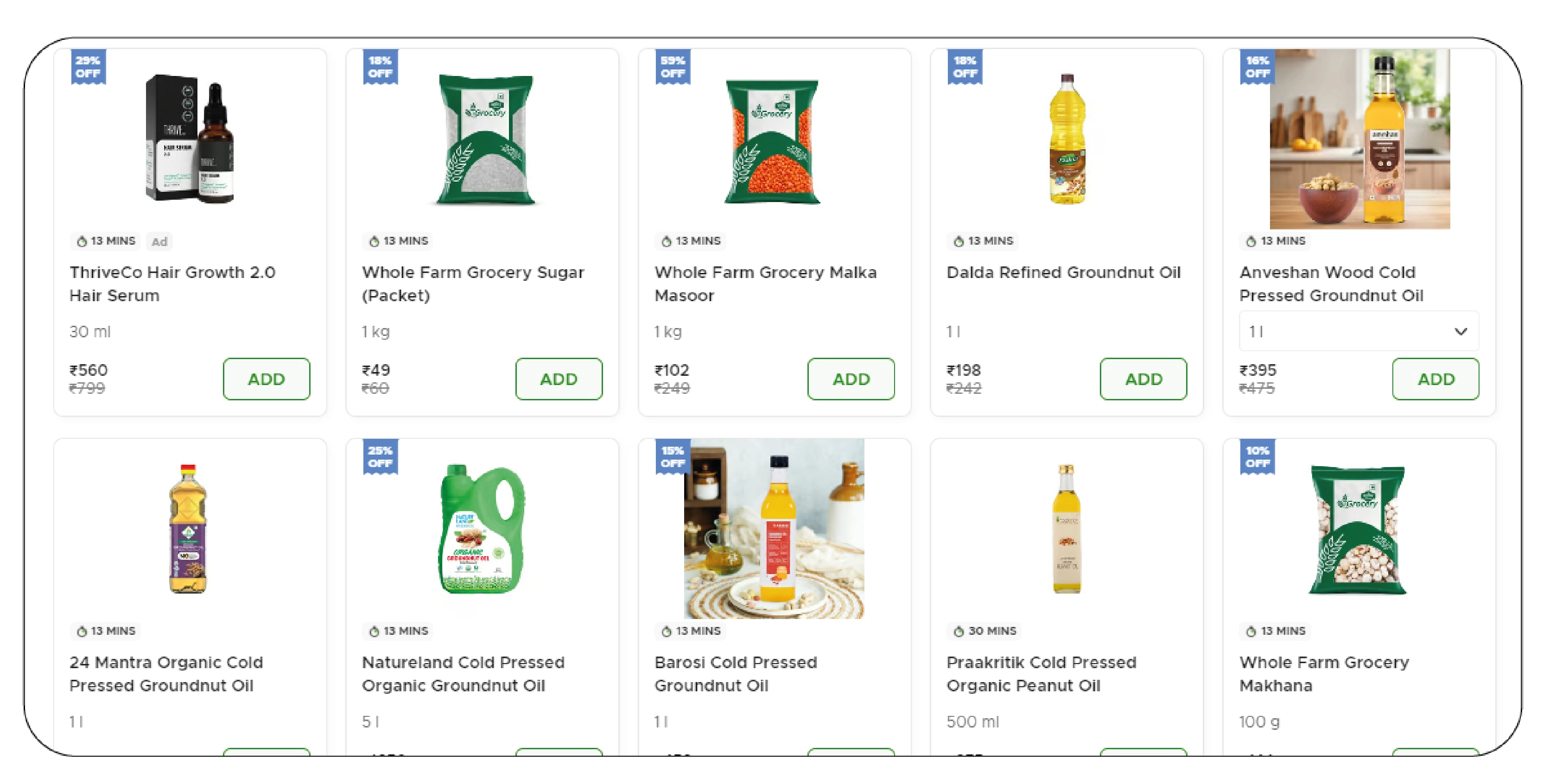
2. Anti-Scraping Measures: However, collecting BigBasket Quick Commerce datasets
can be challenging. These platforms often implement anti-scraping measures such as
CAPTCHAs, rate limiting, and IP blocking. Strategies like rotating proxies, utilizing
headless browsers, and respecting robots.txt rules are vital to bypass these barriers.
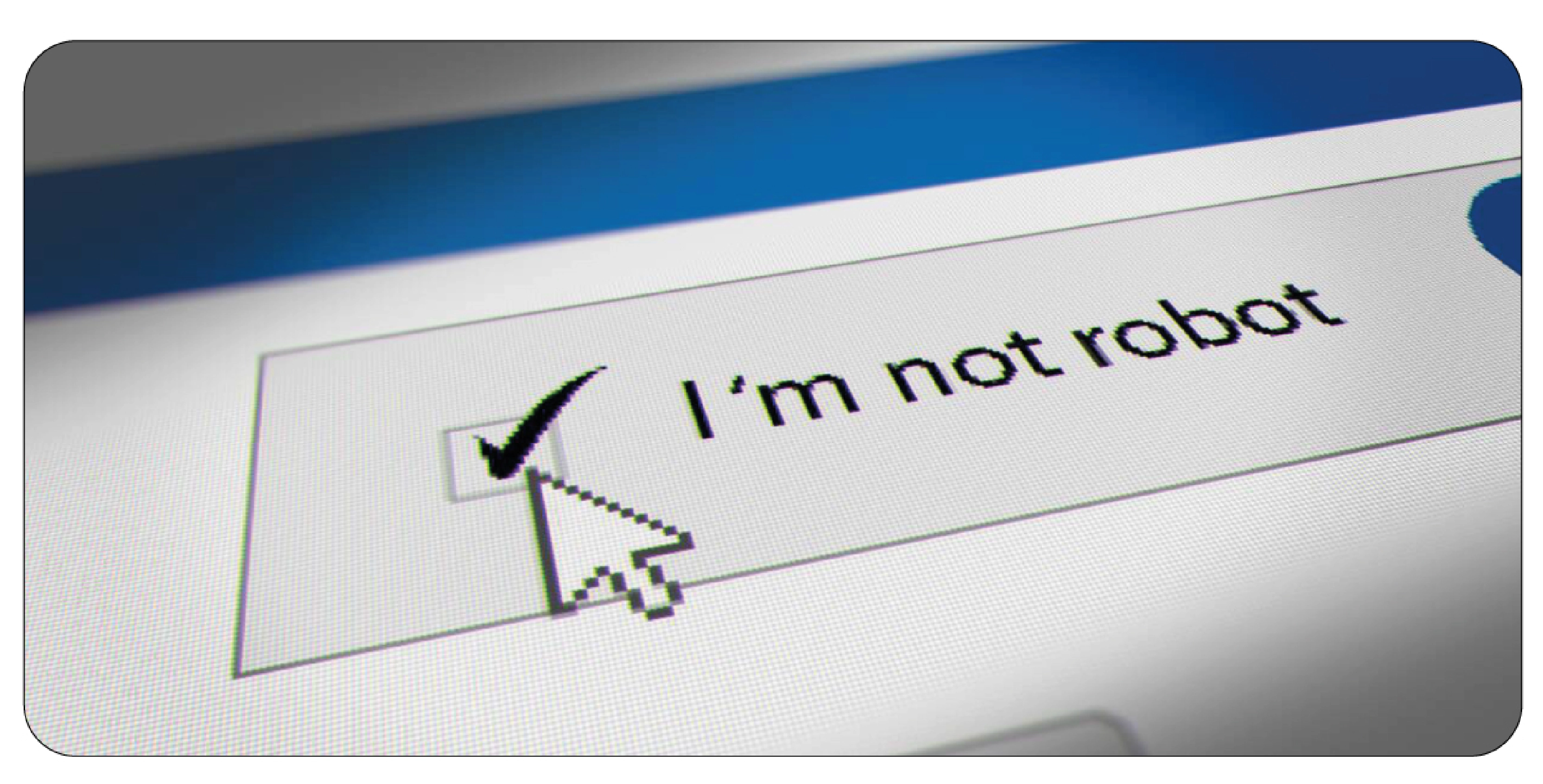
3. Data Quality: Another critical aspect of scraping data, especially from a Blinkit
grocery store dataset or similar sources, is maintaining data quality. Frequent
changes in website structures or data formats can compromise the accuracy and
consistency of the scraped data. This necessitates regular maintenance and
validation of scraping scripts to ensure the collected data remains reliable.

4. Legal and Ethical Considerations: When collecting the Swiggy Instamart grocery
dataset, it's crucial to consider the legal and ethical implications. Adhering to legal
guidelines and respecting the terms of service of the platforms being scraped is
important not only for compliance but also for maintaining ethical standards in data
collection practices.

Best Practices for Scraping Grocery App Data
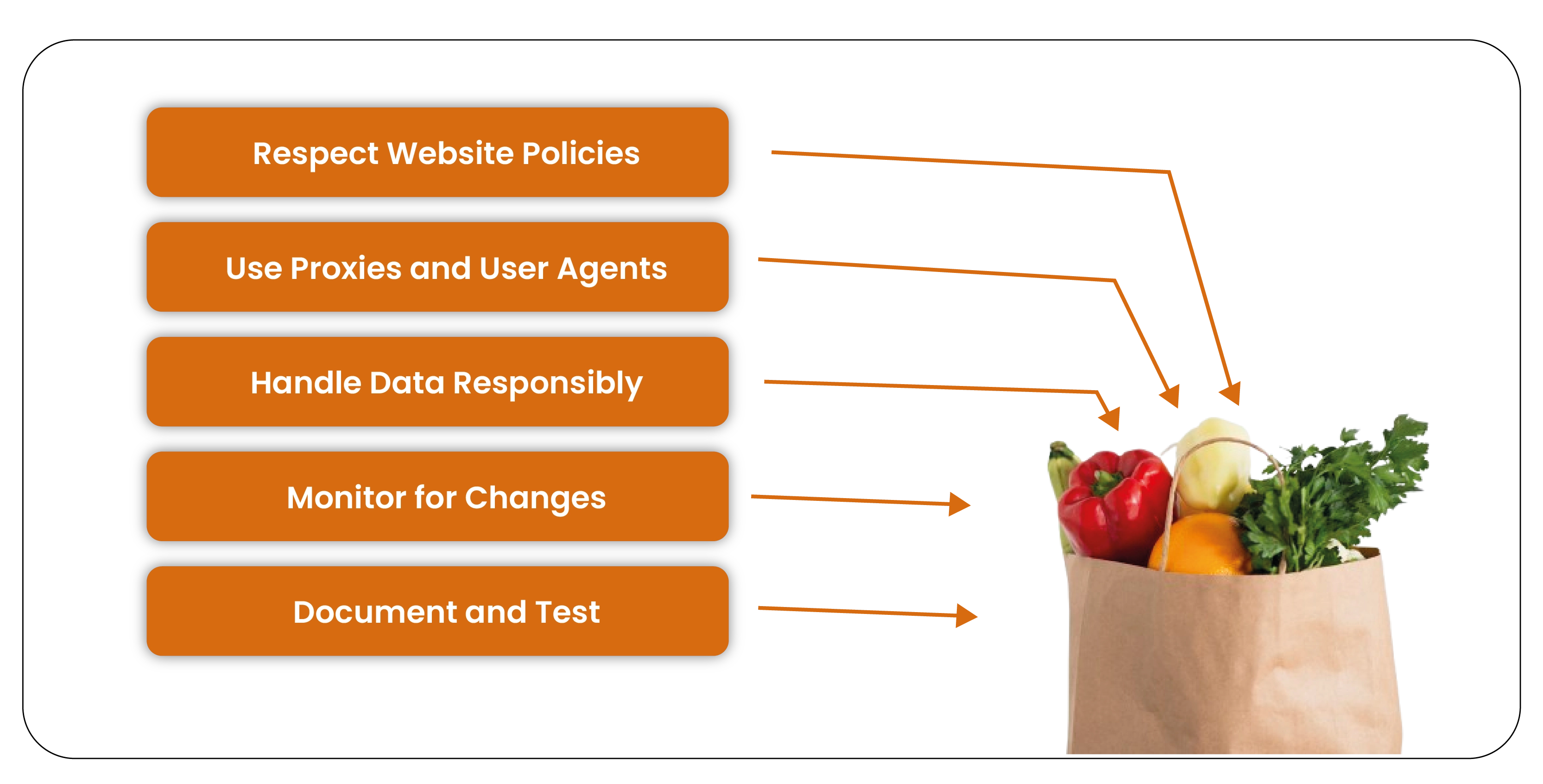
1. Respect Website Policies: Always review and comply with the website's terms of
service and robots.txt file to understand their data usage policies and avoid potential
legal issues.
2. Use Proxies and User Agents: Employ rotating proxies and different user agents to
distribute requests and reduce the risk of getting blocked. This approach helps
simulate traffic from various sources and avoid detection.
3. Handle Data Responsibly:Ensure that the data collected is used ethically and
responsibly. Avoid scraping sensitive or personal information and adhere to data
protection regulations.
4. Monitor for Changes: Websites frequently update their structure and layout.
Regularly monitor and update scraping scripts to accommodate these changes and
maintain data accuracy.
5. Document and Test: Document scraping processes and scripts in detail. Regular
testing ensures that the scrapers function correctly and adapt to changes in the
target websites.
Conclusion
Web scraping grocery app data from platforms like BigBasket, Blinkit, Swiggy Instamart, and
Zepto offers valuable insights for businesses seeking to understand market dynamics,
monitor prices, and improve inventory management. While the process presents challenges,
employing the proper techniques and adhering to best practices can ensure successful data
extraction. By leveraging this data, businesses can make informed decisions, stay
competitive, and enhance their overall strategies in the grocery retail sector.
At Product Data Scrape, we strongly emphasize ethical practices across all our services,
including Competitor Price Monitoring and Mobile App Data Scraping. Our commitment to
transparency and integrity is at the heart of everything we do. With a global presence and a
focus on personalized solutions, we aim to exceed client expectations and drive success in
data analytics. Our dedication to ethical principles ensures that our operations are both
responsible and effective.








































.webp)






